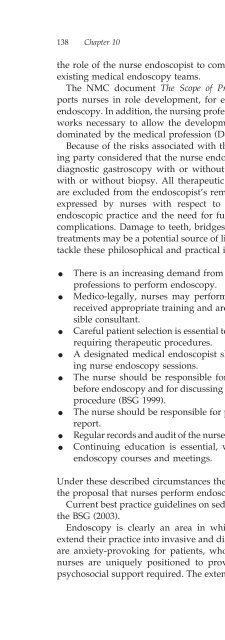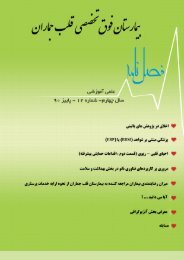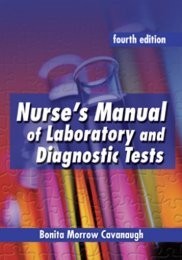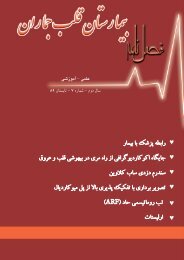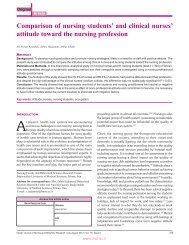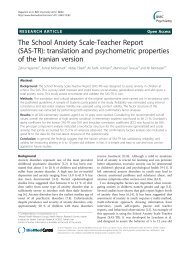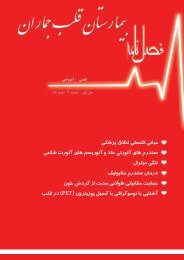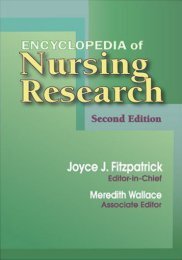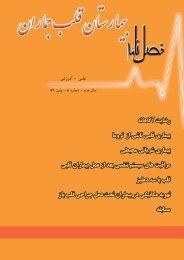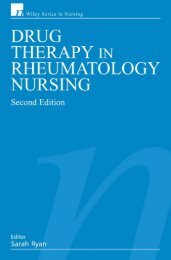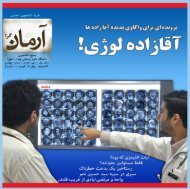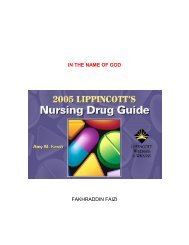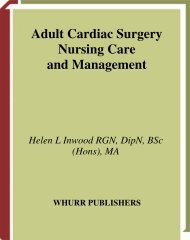Gastrointestinal Nursing.pdf
Gastrointestinal Nursing.pdf
Gastrointestinal Nursing.pdf
You also want an ePaper? Increase the reach of your titles
YUMPU automatically turns print PDFs into web optimized ePapers that Google loves.
138 Chapter 10the role of the nurse endoscopist to complement and increase the capacity ofexisting medical endoscopy teams.The NMC document The Scope of Professional Practice (NMC 2002) supportsnurses in role development, for example carrying out gastrointestinalendoscopy. In addition, the nursing profession in the UK established the frameworksnecessary to allow the development of nursing roles into areas oncedominated by the medical profession (DoH 1997).Because of the risks associated with therapeutic endoscopy the BSG workingparty considered that the nurse endoscopist’s work should be confined todiagnostic gastroscopy with or without biopsy, and flexible sigmoidoscopywith or without biopsy. All therapeutic procedures, ERCP and colonoscopyare excluded from the endoscopist’s remit. Understandable concern has beenexpressed by nurses with respect to the potential legal implications ofendoscopic practice and the need for full medico-legal cover in the event ofcomplications. Damage to teeth, bridges, crowns and other expensive dentaltreatments may be a potential source of litigation. The working party aimed totackle these philosophical and practical issues and summarised:• There is an increasing demand from within both the medical and nursingprofessions to perform endoscopy.• Medico-legally, nurses may perform an endoscopy provided they havereceived appropriate training and are adequately supervised by a responsibleconsultant.• Careful patient selection is essential to exclude high-risk patients and thoserequiring therapeutic procedures.• A designated medical endoscopist should be immediately available duringnurse endoscopy sessions.• The nurse should be responsible for obtaining consent from the patientbefore endoscopy and for discussing the findings with the patient after theprocedure (BSG 1999).• The nurse should be responsible for preparing and signing the endoscopyreport.• Regular records and audit of the nurse endoscopist’s work should take place.• Continuing education is essential, with regular opportunities to attendendoscopy courses and meetings.Under these described circumstances the BSG working party gave support tothe proposal that nurses perform endoscopy.Current best practice guidelines on sedation for endoscopy are published bythe BSG (2003).Endoscopy is clearly an area in which nurses are being encouraged toextend their practice into invasive and diagnostic techniques. Such proceduresare anxiety-provoking for patients, who remain conscious throughout, andnurses are uniquely positioned to provide the technical expertise and thepsychosocial support required. The extension of practice into endoscopy dem-


